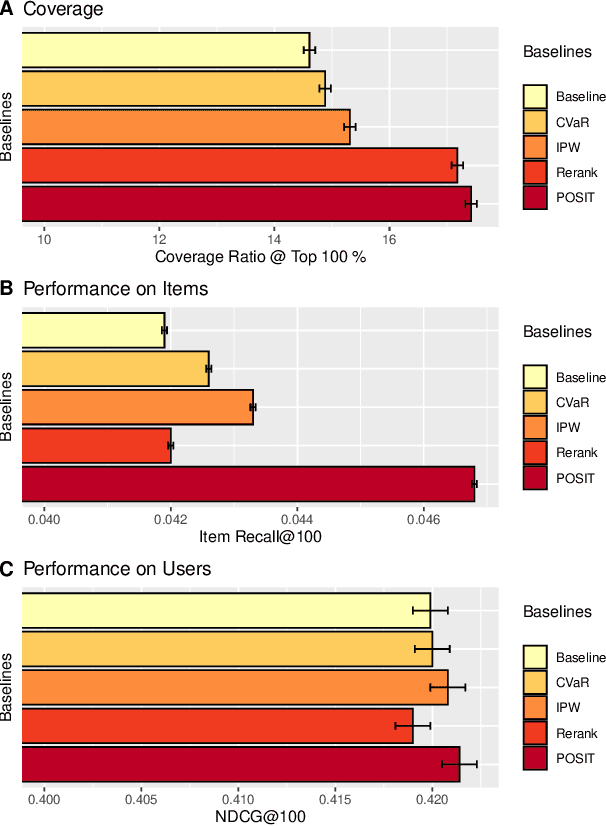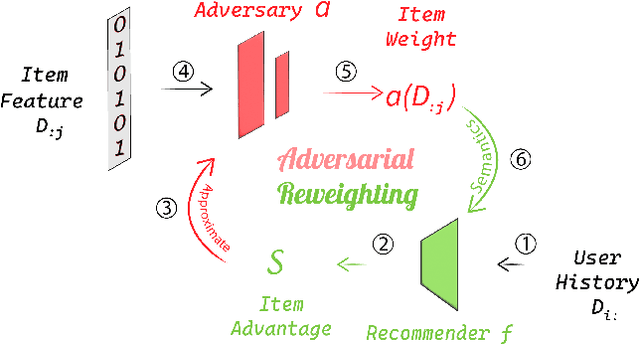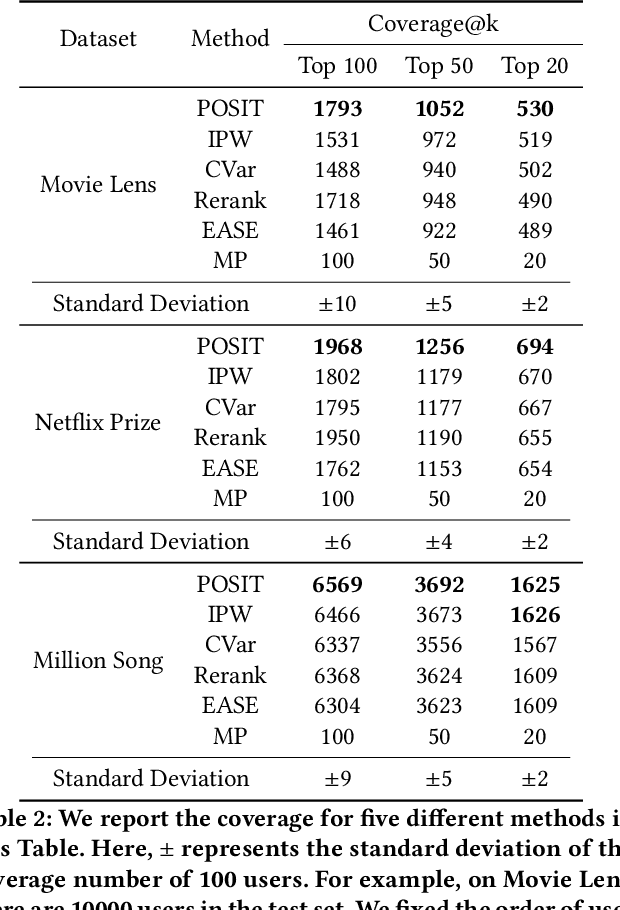POSIT: Promotion of Semantic Item Tail via Adversarial Learning
Paper and Code
Aug 07, 2023



In many recommender problems, a handful of popular items (e.g. movies/TV shows, news etc.) can be dominant in recommendations for many users. However, we know that in a large catalog of items, users are likely interested in more than what is popular. The dominance of popular items may mean that users will not see items they would likely enjoy. In this paper, we propose a technique to overcome this problem using adversarial machine learning. We define a metric to translate user-level utility metric in terms of an advantage/disadvantage over items. We subsequently use that metric in an adversarial learning framework to systematically promote disadvantaged items. The resulting algorithm identifies semantically meaningful items that get promoted in the learning algorithm. In the empirical study, we evaluate the proposed technique on three publicly available datasets and four competitive baselines. The result shows that our proposed method not only improves the coverage, but also, surprisingly, improves the overall performance.
 Add to Chrome
Add to Chrome Add to Firefox
Add to Firefox Add to Edge
Add to Edge